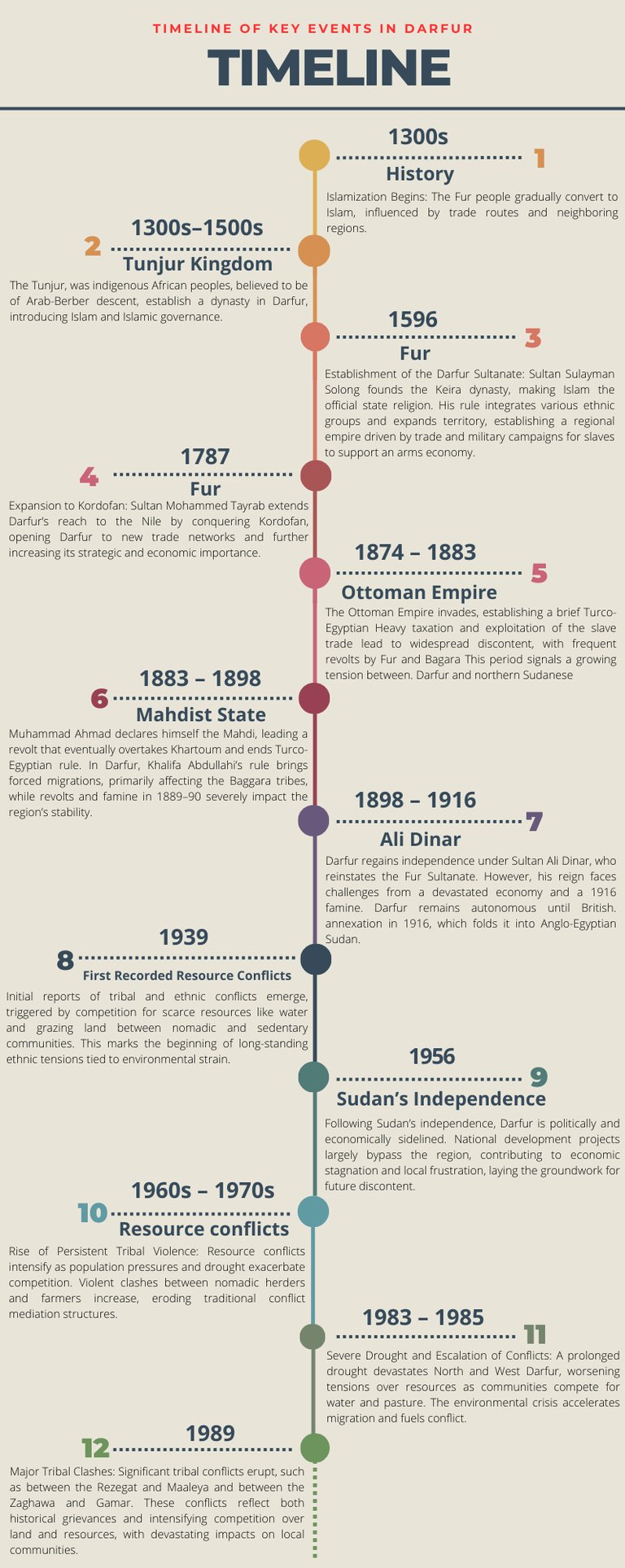Understanding the conflict Dynamic in Sudan and beyond through the timeline, history, and land grabbing in the conflict Area.
THE GEOPOLITICAL BACKGROUND
Darfur does not really have that much of a past in the Sudan. Despite a history of interaction with the Nile Valley, as much with Egypt as with what is now the northern Sudan, Darfur was not finally incorporated into the Sudan until 1916. Neglect by the centre, both in colonial times and since independence, has led to the emergence in the mid-1960s of political protest, culminating in a rebel uprising and a much- publicized conflict unfolding since 2003. Darfur’s place within the Sudan has become an internationally debated question. Let me say at the outset that I believe Darfur’s future lies with the Sudan, but it has to be with a Sudan that is ruled very differently than the present Sudan. But in order to discuss Darfur’s place within the Sudan in the future, an understanding of the past is necessary.


Demographic Changes and Land Disputes in the 1990s and Early 2000s
Darfur is an ethnically diverse region, traditionally inhabited by farming communities such as the Fur, the Zaghawa, and the Massalit, as well as various Arab nomadic groups who herd cattle or camels. El Geneina is one of the largest cities of Darfur, alongside Nyala and El Fasher. The city, which, until the events described in this report, had a large Massalit population, has historically been the political, cultural and demographic center of this ethnic group. It is also home to people from other ethnicities, including Arab groups such as the Rizeigat.
Darfur genocide
The War in Darfur, also nicknamed the Land Cruiser War, was a major armed conflict in the Darfur region of Sudan that began in February 2003 when the Sudan Liberation Movement (SLM) and the Justice and Equality Movement (JEM) rebel groups began fighting against the government of Sudan, which they accused of oppressing Darfur's non-Arab population. The government responded to attacks by carrying out a campaign of ethnic cleansing against Darfur's non-Arabs. This resulted in the death of hundreds of thousands of civilians and the indictment of Sudan's president, Omar al-Bashir, for genocide, war crimes, and crimes against humanity by the International Criminal Court.
